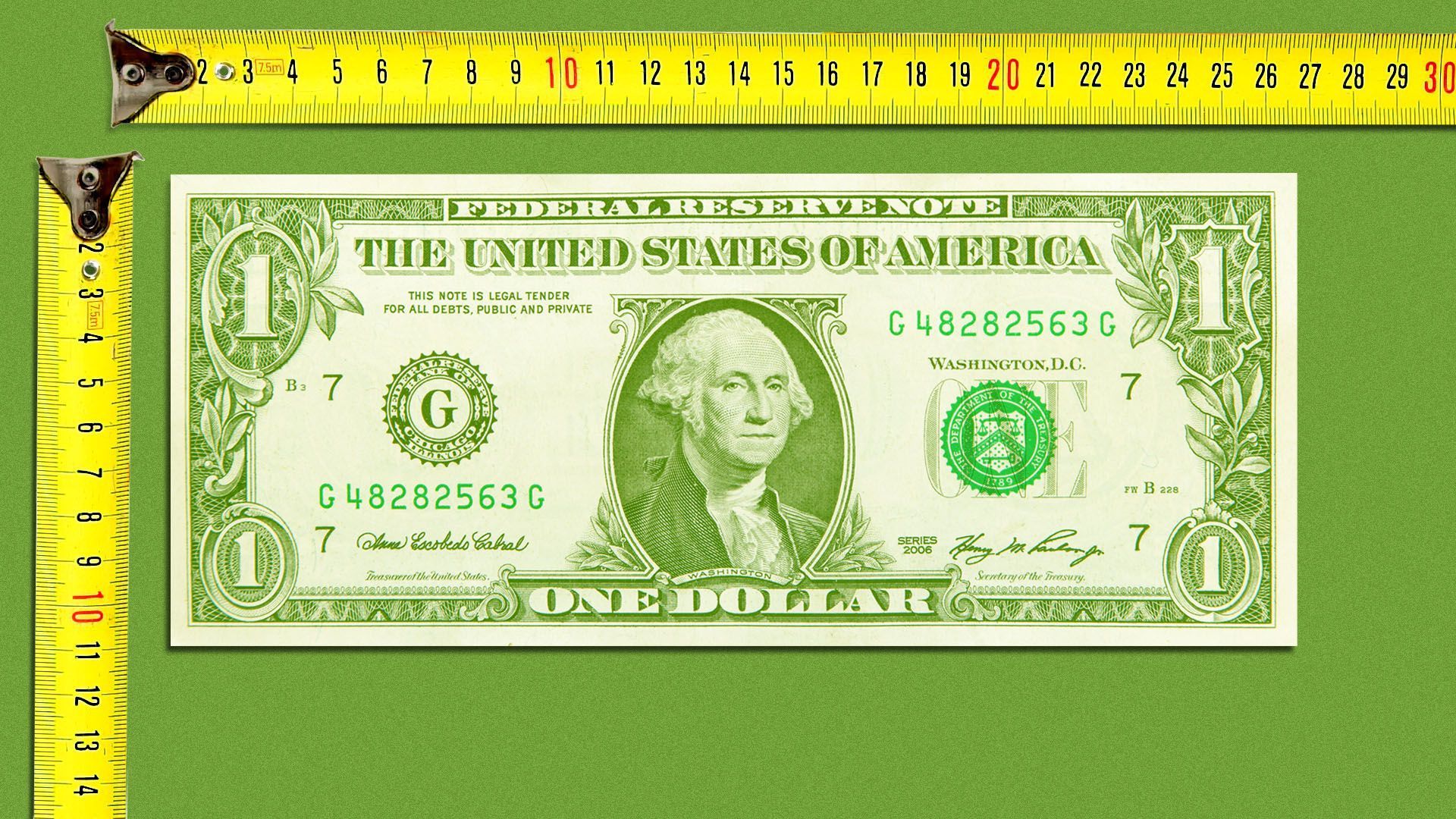Fed plays wait and see with monetary policy
Add Axios as your preferred source to
see more of our stories on Google.

Illustration: Sarah Grillo/Axios
Fed leaders see an economy too much in flux to say definitively how they’ll transition the country away from the past two financially piqued years.
Catch up quick: The Federal Reserve confirmed Wednesday expectations for an interest rate hike in March and that its massive bond-buying program would end by then.
- At the same time, chair Jerome Powell withheld exactly how aggressively the Fed might proceed for the rest of the year — how big the hikes would be and how many times it might raise rates.
Why it matters: Investors and lenders looking for details of the Fed's monetary tightening plan this year will have to wade through more uncertainty.
- Markets had traded up ahead of the announcement at 2pm and swung drastically into the red as Powell talked to reporters, before recovering some of the losses.
What he's saying: “It is not possible to predict with much confidence exactly what path for our policy rate is going to prove appropriate,” Powell told reporters.
The big picture: With inflation at a 40-year high, the Fed is contending with an economy of its own making — “high-class problems” that come with the recovery, said Powell.
Be smart: Inflation is a “particular economic scourge” for low-wage workers, Joseph Fuller, professor of management practice at Harvard Business School, tells Axios.
- Rising prices can lead to more people switching jobs to try to get higher wages, which in turn leads to labor supply issues for employers.
The bottom line: The pandemic is still not over and neither is the uncertainty that it has brought.
Go deeper: Powell faces management of an economy he helped create
